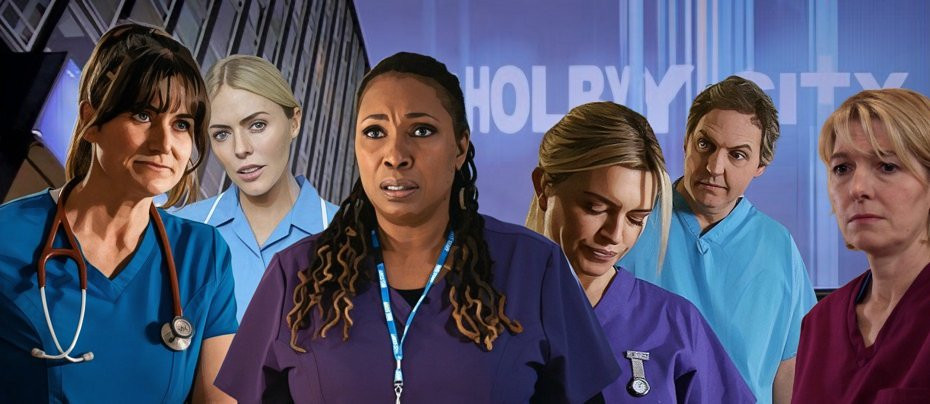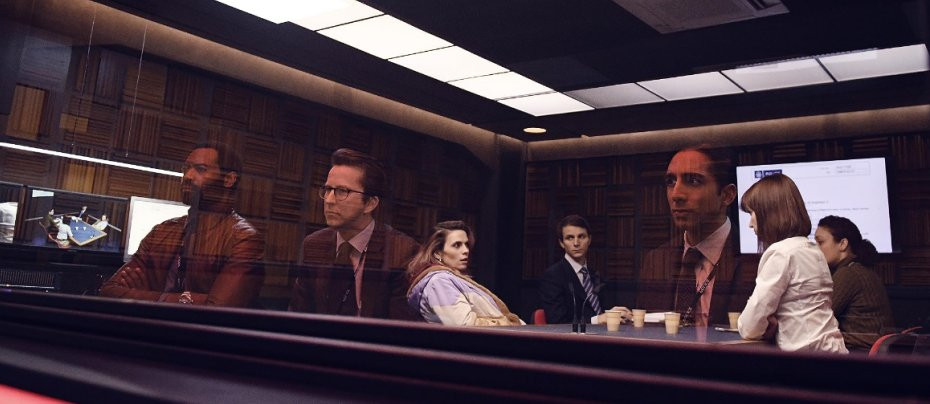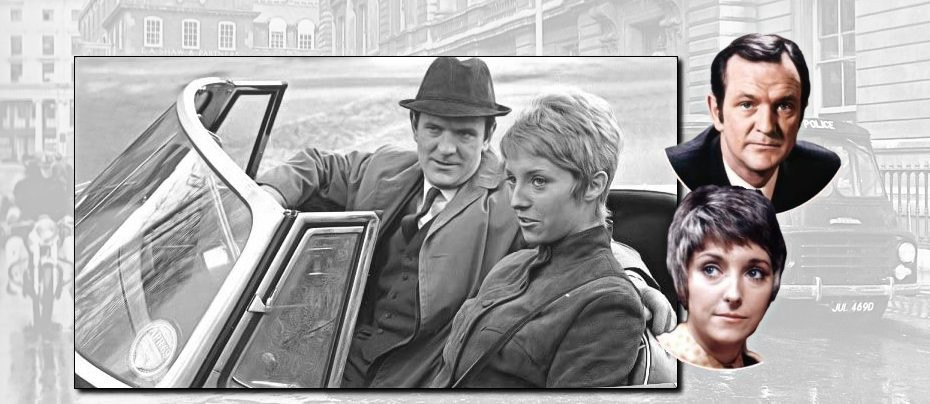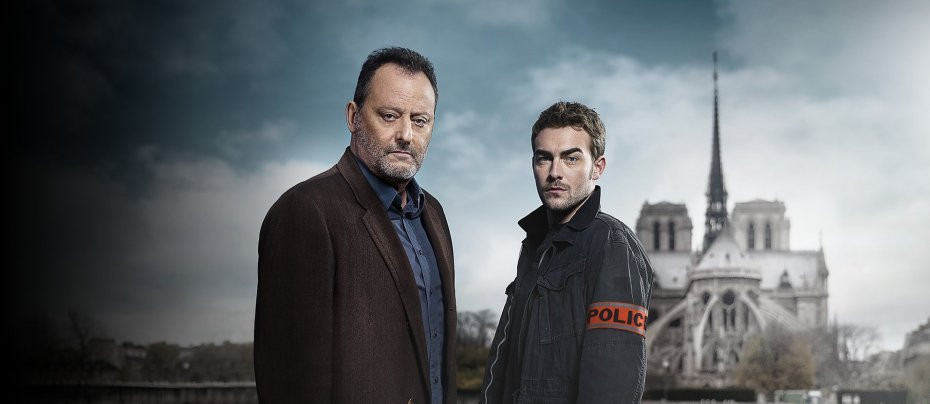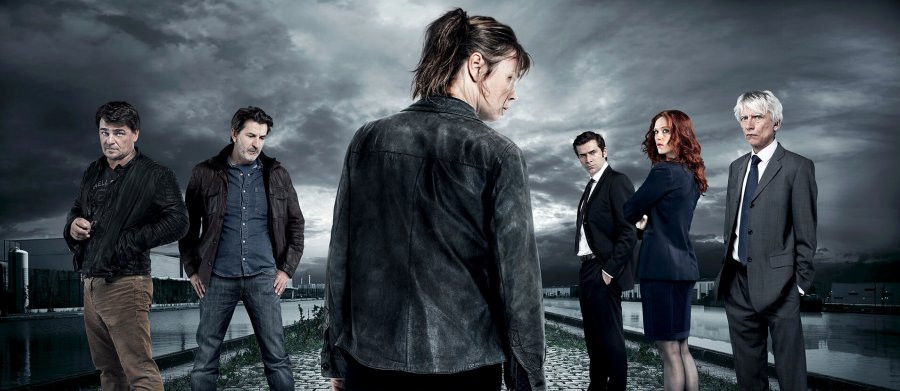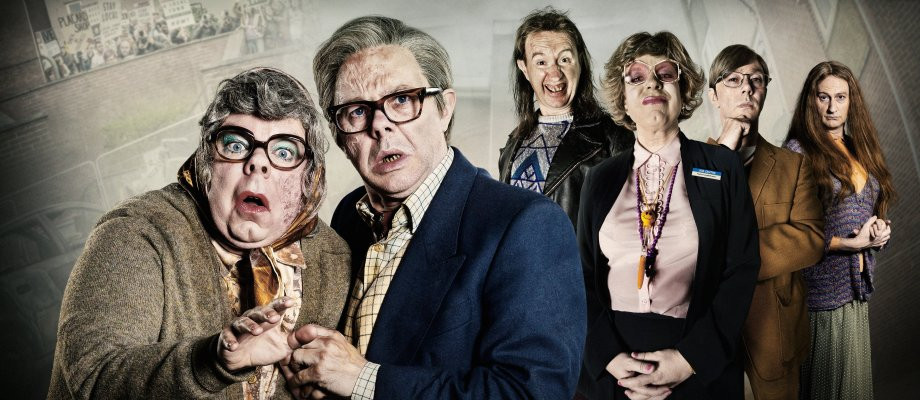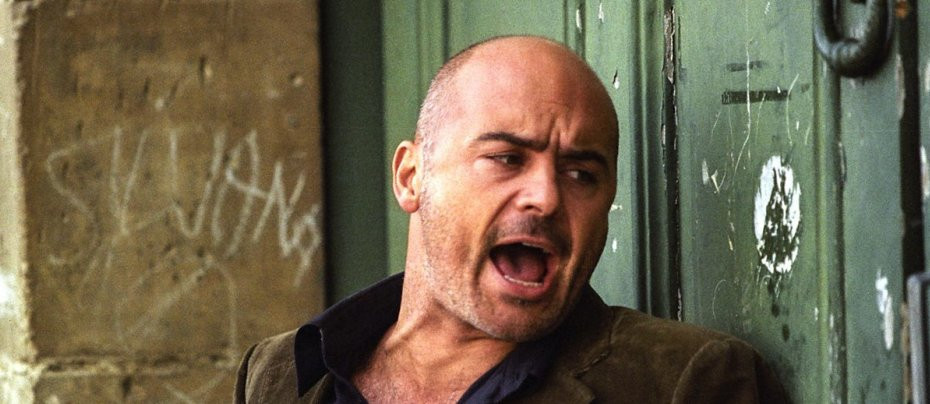
Inspector Montalbano
1999 - ItalyGiven the success of (Andrea) Camilleri's books in Italy, it was no surprise that the television adaptation was a hit there from the start
Il Commissario Montalbano/Inspector Montalbano reviewed by John Winterson Richards
Sicily is an incredibly beautiful island with a rich cultural history. Mention of its name should evoke images of its unique combination of Classical Greco-Roman, Byzantine, Islamic, Norman, and Baroque architecture set in a fierce but fertile landscape basking in a bright Mediterranean sunshine. It is therefore doubly tragic that the automatic word association with Sicily is Mafia.
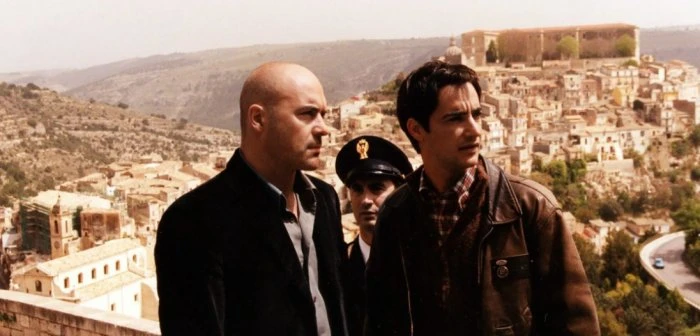
So one might assume that a detective show set in Sicily would be about a heroic crusader against organised crime. Commissario Salvo Montalbano is nothing of the sort. He is an honest pragmatist who just wants to get his job done and enjoy what looks like a very pleasant life in the sun. To him the Mafia is just one more irritation in his everyday work, along with the bureaucracy in which he is a very minor cog, the stupidity and political agenda of his superiors, the variable competence of his subordinates, and the fact that Sicilians are not exactly famous for their cooperation and sense of civic duty. He is often more of a diplomat than an authority. He compromises a lot, sometimes out of a very human compassion, usually because that is the only way to get to the truth. He is guided by a very personal sense of justice which is not at all the same thing as a meticulous observance of the rule book. He is at home in his environment, a culture in which the most important laws are unwritten, and he is able to navigate it confidently, not least because he also understands when he needs to be cautious.
This fascinating, fully rounded character originated in the novels of Andrea Camilleri, a highly respected Italian theatre director and professor who began publishing detective fiction as a second career in his late sixties. Although he is given the more familiar rank of Inspector in English, Montalbano's Italian title of Commissario translates literally as "Commissioner" and is actually closer in rank to the British Superintendent, the Chief of the State Police in a large municipality. It is a point sometimes lost in translation that he is a man of considerable status in his local community, not just a detective.
That community is Vigàta, a fictional city in the province of Agrigento. It is based on Camilleri's own birthplace, Porto Empedocle in Agrigento, but the television adaptation is filmed mainly in a number of locations around the neighbouring province of Ragusa, most notably in the Baroque lower town of the city of Ragusa and in Scicli, where the exteriors of Montalbano's office are shot. The beautifully photographed scenery is one of the greatest attractions of Inspector Montalbano.
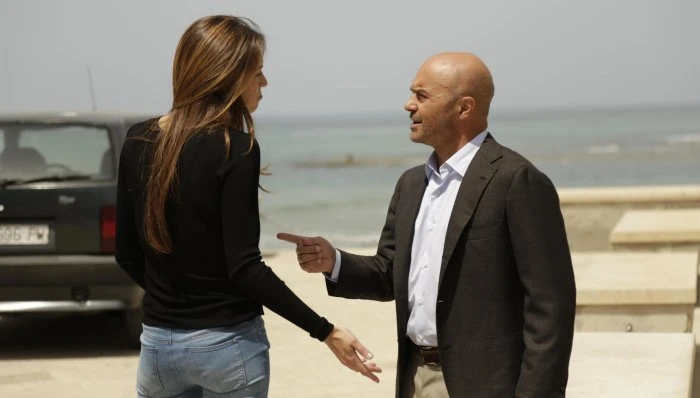
Another is the casting of Luca Zingaretti in the leading role. He may not have been the obvious choice, for he does not seem to be the Montalbano described in the books. Bald, squat, and powerfully built, he looks more like a front row forward than an intellectual seeker of truth and justice, but he is also blessed with large eyes that make him look like an inquisitive baby, a very appealing presence whom it is hard to resist. His lack of hair had the additional advantage of slowing down the appearance of ageing over the twenty two years the show was being produced: Zingaretti was in his late thirties when it began and almost sixty when it wrapped, and there really is not as much difference in his appearance as there usually is for men between those ages.
Throughout that time the charm of the character never wavered. There was never a hint of inner darkness. Cheerful, humane, and well adjusted, Montalbano is the sort of friend anyone would want in real life. One can see why cautious Sicilians confide in him. It has to be noted that he seems to enjoy a remarkably good lifestyle for a mid-level public official. He lives in a delightful beachfront property. Being Italian, he takes food and drink - not least coffee - very seriously: lunch is usually at a basic but delicious sounding seafood restaurant right next to the sea and dinner is provided by his housekeeper, a talented cook whose scapegrace son he tries to keep out of trouble. In an effort to burn off all those calories, Montalbano goes for long swims in the clear blue-green Mediterranean every day. Just as well he keeps in trim because it so happens that his investigations bring him into contact with an extraordinary number of beautiful women, and it has to be said he is not very scrupulous with professional boundaries in this regard. Yes, it looks like a tough life in the Italian State Police.
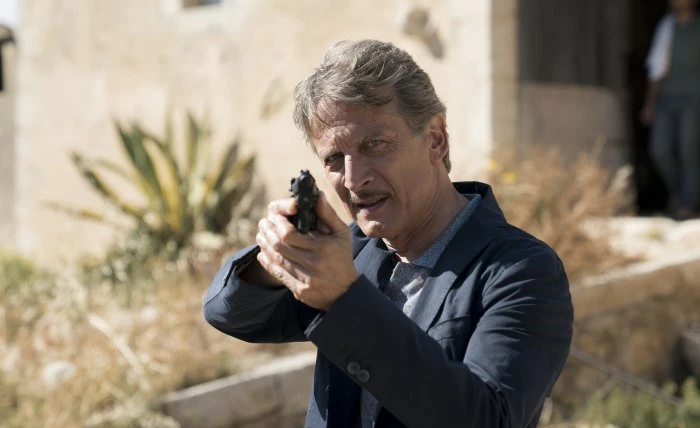
He is backed by an equally amiable team. Cesare Bocci is "Mimi" Augello, his loyal deputy and a somewhat seedy ladies man whose sexual misadventures often get him into situations where his indulgent boss must cover for him. Peppino Mazzotta is the conscientious Fazio, the only one who seems to do much proper investigative work while Montalbano is busy having lunch, going for swims, chatting up beautiful women, and getting Mimi out of trouble, and Mimi is busy getting into trouble. Angelo Russo is the warm hearted Catarella, a uniformed officer so clumsy and dim that he is generally confined to answering the telephone and greeting people at the front desk - where he often finds even these tasks beyond him.
Catarella's clowning in the Italian 'opera buffa' tradition sometimes seems at odds with the tone of the piece when it deals with murder and other serious human issues. Indeed, the rapid transitions between broad comedy and high tragedy in the operatic style are one of the major cultural differences between the Italian and Anglo-Saxon forms of drama.
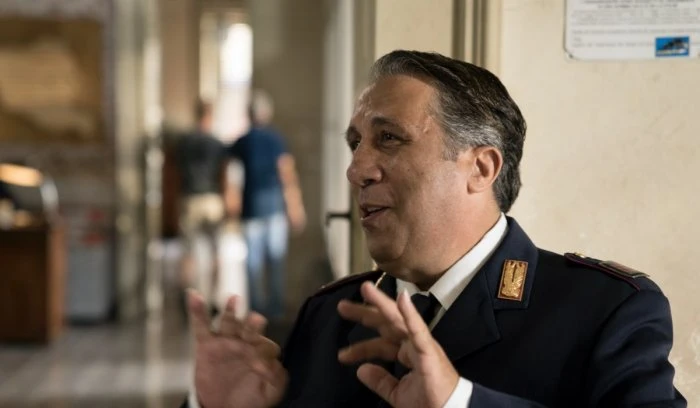
The other big cultural difference is in the Italian attitude to women, at least as portrayed here. Both feminists and traditionalists in the United Kingdom and other English speaking markets might be shocked, albeit for different reasons, by the unreconstructed Mediterranean machismo on display in Inspector Montalbano. That the Italian male has a genuine passion for the female is not in question but the likes of Mimi and even Montalbano himself see her less as a human being with agency than a pleasing creature to be managed.
This is particularly jarring in Montalbano's truly appalling treatment of his long term, long suffering, long distance girlfriend Livia. It is implied that she puts off her own desires for marriage and children for him. In return for her constant loyalty, he forgets her, he ignores her, he lies to her, he puts her off with feeble excuses for the silliest of reasons, and he seems to allow no thought of her to interfere in his dealings with the long line of other attractive women he happens to encounter through his work. He is so inattentive that he does not even notice that she is played by three different actresses, with a fourth providing her voice for part of the time.
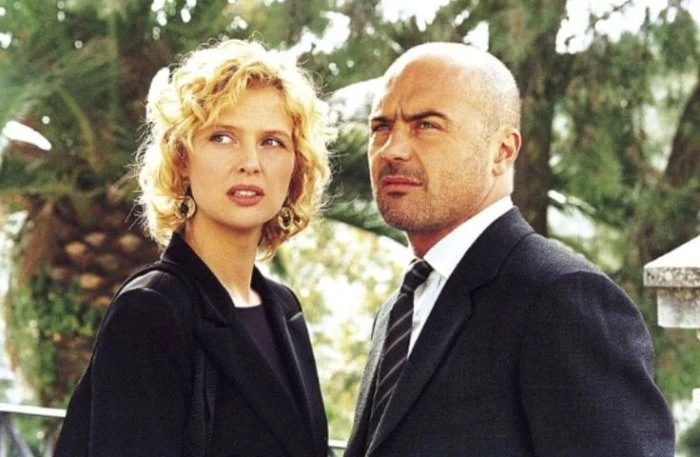
One might expect some development over twenty years, but, no, the worst is last. This is doubly surprising given that the Italian entertainment media have always dressed to the side that likes to call itself "progressive." Zingaretti's brother is in fact a leading left wing politician, and this has sometimes been reflected in the show: in one episode, during the Berlusconi years, Montalbano dreams the Mafia has taken over the Government; other episodes deal rather heavy handedly with the issue of immigration.
Given the success of Camilleri's books in Italy, it was no surprise that the television adaptation was a hit there from the start, but it took time to get established abroad where the novels were then barely known. BBC4 acquired the rights and two early episodes made little impact when they were first shown in 2008. Everything changed in 2011 when BBC4's unexpected success with the Danish thriller Forbrydelsen, marketed in English as The Killing, stimulated the appetite of British viewers for European crime drama. The BBC immediately checked what else they had in stock, and found the hard bitten French thriller Engrenages, marketed in English as Spiral, and Il Commissario Montalbano at the back of the metaphorical cupboard. Both become belated hits in their turn.

The irony of this is that Inspector Montalbano is basically the Anti-Forbrydelsen. It is difficult to imagine anything less like dour, downbeat 'Nordic Noir' than the cloudless blue Sicilian skies, the cheerful characters, the lightening of drama with comedy, and general all round amiability of Inspector Montalbano. The overall style is cinematic, complete with aerial photography making the most of those cityscapes and landscapes, and feature films like Cinema Paradiso are obviously a huge influence, complete with a superb Morricone-esque score.
In spite of its contemporary setting one of the many stylistic elements Inspector Montalbano shares with Cinema Paradiso is a definite sense of nostalgia. Camilleri had been Rome based for many years when he began writing the Montalbano novels and it may be that they were influenced more by his memories of his Sicilian childhood than by on the spot observations of a culture that was beginning to change rapidly after centuries of stagnation. In particular the murders of Judges Falcone and Borsellino a few years before also marked the death of the traditional Mafia as caricatured in Inspector Montalbano. It is significant that Mafia references become less frequent as the show goes on and the gentle political satire of its early years is also downplayed in later episodes. Although Sicily has seen progress in some ways, basic problems remain and new problems have arisen, and, for better or for worse, the Italians seem to be becoming more serious about them.
So Inspector Montalbano was in some ways out of its time from the start and became increasingly so. It was never a serious show and its occasional attempts to be serious usually fell flat. It is no more an accurate study of the social development of 21st Century Sicily than Midsomer Murders is of contemporary Britain.
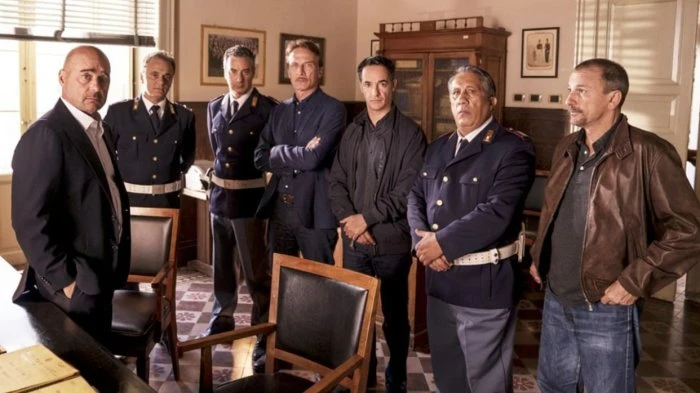
It is not meant to be. It is a piece of escapist fantasy and as such it succeeds perfectly. There is a reason why it lasted for over twenty years, spawning a "prequel" show, The Young Montalbano, and a "television movie" prequel to the "prequel" set in historical Vigàta, The Disappearance of Pato, as well as doing wonders for the Sicilian tourist industry. That reason is its charm. Montalbano is easy company, and it is a pleasure simply to spend time with him and his friends in their Mediterranean paradise - and if, as it must, that paradise has the occasional serpent, we feel comfortable with him as our guide and protector.
Seen this show? How do you rate it?
Seen this show? How do you rate it?
Published on August 3rd, 2022. Written by John Winterson Richards for Television Heaven.


